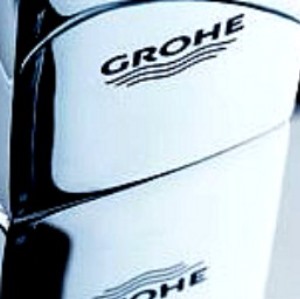The HPO Center spoke with Rob van den Maagdenberg, Vice President of Grohe North Western Europe, the world’s leading single-brand manufacturer and supplier of sanitary fittings.
The rule that applies to football clubs also applies to ‘ordinary’ organizations: those who want to be successful must focus on long-term results. And must not be distracted by a temporary dip in turnover or profits. The real High Performance Organizations (HPOs) subsequently emerge more or less by themselves during economically challenging times such as now.
An example of this is the company Grohe which is world famous for its taps. This summer, the company underwent its second High Performance Organization (HPO) diagnosis, a survey that is completed by all members of staff. But André de Waal, Academic Director of the HPO Center, is already pretty sure that Grohe will obtain a better result than the first time it conducted this test, about two years ago. Why? De Waal: ‘They have won market share and increased profits. And this has been achieved in the building sector, a segment that is virtually at a standstill. You have to be doing something right to achieve this.’
Rob van den Maagdenberg, the enthusiastic General Director of Grohe, confirms this idea. The company scored between seven and eight in the first HPO test, implying that it was not really an HPO according to De Waal’s definition (an HPO scores at least 8.5). He is now hoping for an eight or higher, thus being well on the way to achieving HPO status. But, according to Van den Maagdenberg, that is not what it’s all about. ‘It really centers on the fact that all of you, the entire team, want to perform better than the competition. You want to win; you want to perform each task better every time. If you all sign up to this it releases a great deal of energy and that is fantastic. I don’t know whether you have followed tap-related developments over the past few years but the Cooker tap which provides hot, cold and boiling water, was thought up here. As was the tap that provides filtered water, it too was ‘made in Holland’. In Germany, the location of Grohe’s parent company, they listen to us because they can see that we are working very effectively. It’s almost as though we are emitting energy.’
Van den Maagdenberg admits that there are, of course, many methods for improving an organization’s performance. ‘But the advantage of HPO is that it is very practical and easy to implement. The research shows you very quickly which buttons need to be pressed in order to improve performance. It is a very simple method that points the finger at the place that needs attention.’ But Van den Maagdenberg warns that you cannot make fast-paced improvements with HPO. ‘In order to become HPO, you must continually engage in improving. This must be part of the company’s culture; it must become automatic. You do not achieve this in one or two years; you need a great deal of time to achieve it.’
For more information about the HPO Framework, our lecturers, HPO Experts, workshops and Master Classes, please contact us (vink@hpocenter.com or T. +31 (0) 35 – 603 70 07).

